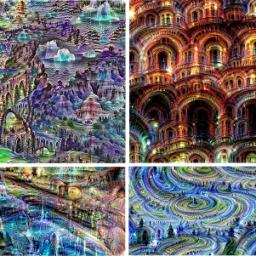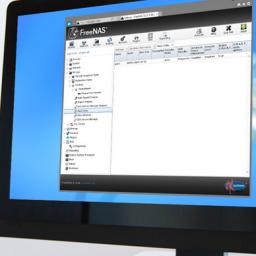
"Websites will
not be forced to honor consumers' "Do Not Track" requests as the Federal Communications Commission today
dismissed a petition that would have imposed new requirements on companies like Google and Facebook.
Consumer Watchdog had petitioned the FCC to "initiate a rule-making proceeding requiring 'edge providers' (like Google, Facebook, YouTube, Pandora, Netflix, and LinkedIn) to honor 'Do Not Track' Requests from consumers." The group's proposed rule would prevent online services from requiring consumers to consent to tracking in exchange for accessing Web services, preventing online services from sharing personal information of users with third parties when consumers send Do Not Track requests.
The group pointed out that the FCC intends to impose new privacy rules on Internet service providers under Section 222 of the Communications Act, the privacy portion of the Title II common carrier regulations that the FCC is applying to broadband providers such as Comcast and AT&T. But those rules don't apply to websites."
This week on BSD Now, the *BSD communities' podcast - OpenBSD developer Brandon Mercer discusses the state of IT in health care; The NetBSD 7.0 Release, and other headlines:
- Building your own OpenBSD based Mail server
- Recipe for building a 10Mbps FreeBSD based router
- Getting started with OpenBSD's new UEFI bootloader
- CloudFlare develops interesting new netmap feature
- "Open Source as a Career Path" FreeBSD panel discussion
Watch now:
YouTube , or Direct download @
BSDNow.tv
Mozilla has been rethinking its add-on architecture for browser extensions, and has just made an announcement that may have profound implications for developers and browser users everywhere:
"Mozilla today announced major changes to how Firefox will implement add-ons going forward. The most important of these is the adoption of a new extension API that will be largely compatible with the one currently in use by Blink-based browsers like Chrome and Opera. This so-called WebExtensions API will ensure that developers will only have to make a few small changes to their code for their add-on to run on Firefox.http://techcrunch.com/2015/08/21/chrome-extensions-are-coming-to-firefox/http://www.thetimesgazette.com/mozilla-on-track-to-modernize-firefox-add-on-systems-and-extension-leaves-developers-unhappy/6502/https://wiki.mozilla.org/WebExtensions"We would like add-on development to be more like Web development: the same code should run in multiple browsers according to behavior set by standards, with comprehensive documentation available from multiple vendors,"Mozilla's Kev Needham writes in today's announcement. "Not everyone is happy about it. The developer of the popular
DownThemAll browser extension has proclaimed this move to be the end of his extension, and potentially many others. He says,
Gone with DownThemAll! will be add-ons that e.g. let you change major bits about the Firefox user interface (e.g. tabs tree add-ons), add-ons that allow you to do more "advanced" stuff than just showing or slightly altering websites, such as e.g. restarting the browser upon click (unless mozilla kindly provides an API for that, which won't be compatible with Chrome, of course). Add-ons like NoScript will be severely limited in their feature set as well. Say byebye to Greasemonkey and hello to Tampermonkey, with it's limitations. Want that add-on that lets you change the new tab page for something else or enhances that page? Maybe it will be available, maybe not, depending on if and when mozilla kindly provides WebExtensions APIs for such things. And of course, depending on if there will be an author creating this entirely new add-on from scratch.
What this also means: Almost all your existing add-ons will be broken, entirely, save for some Add-on SDK add-ons, namely those that don't do anything fancy. Sure, even today, lots of add-ons break, and some add-ons will not get updated when they do and there are no suitable replacements. However, with this change, almost every add-on will be completely broken and in need of major updating by the extension authors. Good luck with that.

A Ukrainian nonprofit organization, started in 2012 as a watchdog for human rights and democratic development in Ukraine, had its website temporarily taken offline by a subsidiary of the U.S.-based registrar company GoDaddy.com at the behest of the Russian government.
The Maidan Monitoring Information Center announced today that one of its domain names-
maidanua.org-had been
blocked indefinitely by Wild West Domains, LLC, the GoDaddy subsidiary, following a formal request by Roskomnadzor, Russia's telecom regulator and censor. "They refuse to reply to our requests," says Nataliya Zubar, board chair. However, following numerous requests by The Daily Beast to GoDaddy for comment, the URL appears to have been reactivated.
"We registered it with a U.S.-based registrar as an alias because we were afraid of censorship attempts from Ukrainian authorities at the time. The threat of censorship in Ukraine has dissipated after the political breakthrough of March 2014, but now, ironically, we are being censored by a U.S.-based company."
Microsoft has become
The OpenBSD Foundation's first ever Gold contributor ($25,000 to $50,000), in large part due to the OpenSSH project. The donation was made following the PowerShell's Team's blog last month, announcing their future plans to
implement the widely requested SSH protocol. In recent years, and attributed to change in leadership, Microsoft has done an about face in support of open-source, beyond just pushing .NET.
The Foundation helps fund work on some widely distributed, under-funded open source projects, including OpenBSD, OpenBGPD, LibreSSL, and OpenNTPD, to name a few. This donation is a boon to the cash strapped projects, where
users often out-donate corporations, who directly profit from the software. The 2015 fund raising campaign has raised $125,000 which just tops last year's contributions after the fallout of OpenSSL, and the branch of LibreSSL.

Artificial neural networks have spurred remarkable recent progress in image classification and speech recognition. But even though these are very useful tools based on well-known mathematical methods, we actually understand surprisingly little of why certain models work and others don't. How do you check that the network has correctly learned the right features? One way to visualize what goes on is to turn the network upside down. Neural networks that were trained to discriminate between different kinds of images have quite a bit of the information needed to generate images too. It can help to visualize the network's representation. in some cases, this reveals that the neural net isn't quite looking for the thing we thought it was.
If we choose higher-level layers, complex features or even whole objects tend to emerge. We call this technique "Inceptionism". If a cloud looks a little bit like a bird,
the network will make it look more like a bird. After several passes, a highly detailed bird appears, seemingly out of nowhere. Of course, we can do more than cloud watching with this technique. For example, horizon lines tend to get filled with towers and pagodas. Rocks and trees turn into buildings. Birds and insects appear in images of leaves. We can even start this process from a random-noise image, so that the result becomes purely the result of the neural network. These computer 'dreams' generated are a fascinating insight into the mind of a machine.
This week on BSDNow the BSD communities' podcast, features an interview with Bryce Chidester on running a BSD-based shell provider, a video tutorial
'Chaining SSH connections', and other highlights:
Watch now:
YouTube, or Direct Downloads at
BSDNow.tv
 "Websites will not be forced to honor consumers' "Do Not Track" requests as the Federal Communications Commission today dismissed a petition that would have imposed new requirements on companies like Google and Facebook.
"Websites will not be forced to honor consumers' "Do Not Track" requests as the Federal Communications Commission today dismissed a petition that would have imposed new requirements on companies like Google and Facebook.


